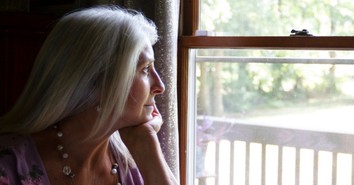4 Questions to Consider When Deciding How to Educate Your Children

The way we elect to educate our children weighs heavily on most parents as it is a large part of the way our kids are shaped and molded into the people they will become. I understand that choice in education is a privilege for sure; not all of us have the time, resources, or ability to think beyond the free public education offered but even if you are limited in what you have access to we all have a vital role to play in our kids' educational journey.
For those who have the chance to think about what their child needs and have the opportunity to explore a variety of options, there are some helpful questions you can consider that can guide you as you discern the best path forward for your kids. If you are limited in how you can approach your child's education, these questions can help you better advocate for your child in the setting they are in, as well as help you determine what they most need from you at home.
I firmly believe there is no one-size-fits-all model for parenting or education. In our own home, we use a variety of approaches and even settings for our kids to learn. Our oldest kids homeschool alongside their peers in a co-op. My oldest child is ready to do most of his work independently; my middle two kids still need a large amount of guidance in their studies. Our youngest two kids learn at a preschool and daycare and will attend Kindergarten at a local private school. We have to pivot in order to accommodate the needs of each of our kids as well as honor our own limitations as parents. It’s not easy, though; self-doubt can get in the way of seeing the vision of what is the best way for our kids to learn.
Here are some questions that can help guide you as you assess the best way to educate your children:
1. Do you trust the adults who will be stewarding your kids' lives during the school week?
Kids in grades K-12 spend about 30 hours at school a week. That is a huge chunk of their waking hours spent in the school building. While school isn’t everything when it comes to formation (just ask teachers; they often feel they are fighting an uphill battle), it definitely plays a huge role in shaping the worldview of our kids. Unfortunately, most public schools don’t spend a lot of time helping parents really get to know the people who will be teaching their kids; parents really have to do their own investigating to make sure the adults placed in classrooms are safe people.
Another factor to consider is that there is no moral compass for how teachers are chosen in the public school system. Teachers can come from all walks of life, they can identify as whatever gender or sexual orientation they prefer, they can come from any religious background, and more. As parents we have to ask probing questions when we interact with the staff at our child’s school to make sure that they are teaching safe and wholesome ideas to our kids. Don’t just blindly trust that every adult in your kid's school has your best interest at heart.
If you are looking outside the traditional public school system, you still need to be mindful of the types of communities your kids are engaging with. It’s important to investigate the standards that private schools are adhering to when staffing and accepting families. If you are a part of a learning co-op you also should be intentional when choosing what your learning community looks like. Safe adults are vital to ensure your children are well nurtured as they grow in stature and knowledge.
2. What educational model matches your child's and family's lifestyle best?
There are so many ways to learn! Homeschoolers have an edge when it comes to thinking outside the educational box because we get to choose what our days look like, but that being said, many of us still battle the idea that education should look like what is happening across the country in most classrooms with worksheets, tablets, standardized testing, 6 hours a day of learning, and more!
As a former teacher I can testify to the fact that this model does not work well for the vast majority of kids. Unfortunately, generally, school classrooms are packed, schools are underfunded, teachers are leaving in droves, and parents are minimally involved, leaving it very hard to be creative in how to meet the many standards placed on teachers while also inspiring kids to be lifelong learners.
Parents, we need to do some work and dream about what we feel would be the best way for our kids to learn how to love learning and do our best to choose an educational setting that best facilitates making the dream a reality.
Even if you can’t afford to homeschool or to send your kids to a private school you can ignite a passion for learning at home while you are together.
All kids learn best through hands-on experiential learning experiences. Be intentional about creating these kinds of learning moments in your home. Let your kids bake with you, read to them aloud while they play with toys in their room, construct Lego creations and forts, do math while bouncing on a ball, take your kids on ‘field trips,’ and the list goes on! Make learning a part of your family life; it’s not just the school's job to equip your child for their academic future.
3. How is faith incorporated into the learning environment?
I’m not a huge fan of everything being overly spiritualized in our homes, but how can our kids take Jesus seriously if he’s only a Sunday morning consideration? We need to be talking about how faith impacts our lives and the world every day.
I love the motto of our Classical Conversations co-op; it is to ‘Know God and Make Him Known.’ What a succinct and beautiful way to encapsulate the reason why knowledge matters! It’s not just about getting a good job, getting into the ‘right schools,’ or achieving well. Education ultimately is about learning about God’s world so you can better understand and articulate who our God is to others.
Guess what! You can steal the Classical Conversations motto and use it to explain why doing your homework well matters to your kids. It’s our job to point our kids back to Jesus and his truth, no matter what our family routine looks like.
We also need to be mindful if our kids are learning things in school that actually tear down the tenets of faith that we are working to instill in our children. Our children’s peers and teachers have a huge influence on how they will grow to see the world. We cannot blindly trust the ‘system’ we have to be involved in our kids' lives making sure that they are safe when we send them out into the world.
4. Is my child able to thrive in this environment?
Lastly, we need to think of the strengths and weaknesses of our kids and how their learning environment either allows them to excel or pushes them into a box they were never made to fit in. My own kids land all over the place when it comes to how their strengths and weaknesses interact with academics. My oldest is a quick learner, he enjoys academics, and school is generally easy for him. My next son is a hands-on learner and struggles with attending. Traditional academics take more effort for him, meaning he’d be left behind in a traditional classroom. Homeschooling has been a safe haven for him, and he continues to excel. My daughter is very social and people-oriented. Having several chances for her to connect with others during the week is vital for her to stay joyful.
Our youngest kiddos struggle with anxiety and the effects of trauma and are academically bright. They need routine, consistency, small classrooms to not be overwhelmed, and a place that allows them to be active during the day. Our local faith-based private school offers them a safe school environment that offers them a predictable routine but is also flexible, so they have the chance to be active during the day. The small classes help them not to feel overwhelmed in this environment. Just in my family, there is a lot to consider when it comes to academics, and even more than that, there are many ways we could work to meet the needs of each of our kids.
Each family has the joy and responsibility of leveraging the resources, knowledge, and expertise you have to help your children grow into men and women who will learn to love the Lord with all their hearts, minds, souls, and strength.
Photo Credit: ©GettyImages/Iam Anupong

Originally published March 13, 2024.





